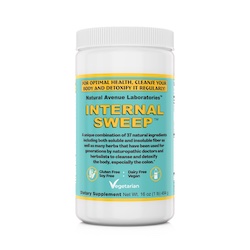Liver Detox: Dangers of Recycled Bile
How to Make Sure Your Digestive System Doesn't Turn Against You: A Guide to Liver Health
The Shocking Truth About Recycled Bile: A Dangerous Sludge
While bile is terrific at breaking down fats, it carries a potential double-edged sword. It contains not only bile salts necessary for digestion but also cholesterol, endotoxins, xenobiotics, and other waste products. Each time bile is recycled, these toxins can be redeposited into your body, gradually making it thicker and sludgier. This denser, sludgier bile is also more acidic and can be irritating to your tissues. As bile becomes increasingly polluted, it can eventually solidify into gallstones. This can disrupt the normal flow of bile and cause discomfort or pain. Additionally, reabsorption of cholesterol can contribute to elevated cholesterol levels in the body. Ouch!
Soluble Fiber: Hauling the Body's Trash
Soluble fiber, found in foods like oats, beans, fruits, and vegetables, transforms into a gel-like substance when combined with water. This gel-like consistency is what grants soluble fiber its remarkable properties.
In the small intestine, soluble fiber attaches to the bile salts, cholesterol, and other waste products, making these molecules too large to be absorbed back into the bloodstream, effectively preventing their return into circulation and eliminating them from the body through regular bowel movements. This interference serves as a protective barrier against the reabsorption of toxins and fats that could potentially lead to a toxic bile environment.
The result? A healthier you, protected from those accumulating toxins and fats. Plus, a natural way to keep your cholesterol in check.
About 95% of Americans Are Missing Out on Essential Fiber
Did you realize that an estimated 95% of Americans aren’t getting the daily fiber they need? Most are only eating around 15 grams a day, when women should be aiming for 25 grams and men for 38 grams. But it's not just about quantity; the type of fiber matters too. People often generalize fiber's benefits, but recent research shows it's more complex than they realize.
Think All Fiber is Created Equal? New Research Begs to Differ!
Scientists have discovered that not all fiber is created equal. Health benefits can vary by the type of fiber, the amount used, and the individual's gut microbiome. So, to truly benefit from fiber, consider these factors.
Soluble fibers like pectins, gums, mucilages, and beta-glucans form a gel-like substance primarily in the small intestine, where they go to work flushing out toxins, fats, and cholesterol. On the flip side, insoluble fibers like cellulose, hemicellulose, and lignin primarily function in the large intestine, where they add bulk to stools and aid in moving waste through the digestive tract.
Then there are fermentable fibers, which are broken down by gut bacteria, producing beneficial short-chain fatty acids (SCFAs) like acetate, propionate, and butyrate. These fatty acids serve as an energy source for the cells lining your colon and may also offer various health benefits. Prebiotics, a special type of fermentable fiber, specifically boost good bacteria in the gut, aiding digestion and overall health. While all prebiotics are fermentable, not all fermentable fibers are prebiotics.
So, diversity in your fiber intake is key for a well-rounded approach to digestive health.
In our fast-paced world, where processed foods often dominate the menu, it is challenging to incorporate all these diverse fibers. With a meticulously crafted blend of 15 diverse fibers, Internal Sweep has been the trusted choice for many satisfied customers for over a quarter of a century.
Want a simple solution? Consider adding Internal Sweep to your meals. Think of it as the body‘s detox squad, protecting you from toxic bile recirculation.
Internal Sweep: A masterpiece in digestive wellness, contains not just one or two different plant fibers, but 15 different plant fibers all acting on different parts of your digestive system. The formula showcases soluble fiber like pectins, mucilages, and gums, bolstered by the strength of insoluble fiber, fermentable fiber, and prebiotic fiber.
Our commitment to your health is unparalleled. For over 25 years, the dedicated users of Internal Sweep have witnessed its unmatched benefits. Their unwavering trust stands as a testament to our consistent quality.
Formulating Internal Sweep was no small feat. Balancing the multitude of beneficial ingredients required extensive research and precision. Furthermore, manufacturing such a diverse blend without compromising on its efficacy demonstrates our expertise and commitment to quality.
Choose Internal Sweep – a culmination of dedication, science, and craftsmanship, endorsed by countless satisfied customers.
15 plant fibers in Internal Sweep:
- Psyllium Husk: Primarily contains soluble fiber and it is partially fermentable.
- Flax Seed: Contains both soluble and insoluble fibers, and it is partially fermentable.
- Fructooligosaccharides (FOS): They act as soluble fiber as well as highly fermentable fiber. Also functions as prebiotic.
Health & Longevity Insights Blog
-
Is Your Tea Bag Made of Plastic? The Truth About Microplastics in Tea
Jan 21st 2026If you have been hearing more about microplastics lately, you are not alone. It is natural to won
-
BIO-tract Probiotics: 15x Greater Survivability Than Capsules
Jun 22nd 2025Finally—A Smarter Way to Deliver Probiotics to Your Gut If you’ve ever taken a probiotic, you p
-
Is Streptococcus thermophilus Safe?
Apr 26th 2025Is Streptococcus thermophilus Safe? Why This Powerful Probiotic Is in Gut Mate “Someone looked at
- Read more articles



